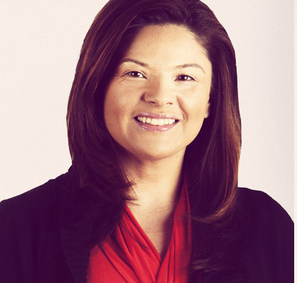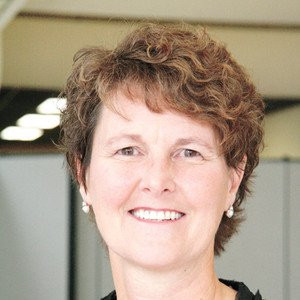Horowitz: New Generation of Latinos Fit Familiar Immigrant Pattern
Tuesday, November 26, 2013
Rob Horowitz, GoLocalProv MINDSETTER™
 View Larger +
View Larger +
Latinos have renewed the promise of America and the spirit of the American dream by adding new ideas and perspective to our culture, believes Rob Horowitz.
Contrary to the rhetoric and scare tactics of some opponents of comprehensive immigration reform, Latinos are following the typical immigrant pattern of rapid assimilation into American culture. Univision’s recent launch of Fusion, an English language cable channel whose target audience is young Latinos, is a case in point. It is a market response to the fact that most young Latinos watch television in English. A new analysis conducted by the PEW Hispanic Center finds that 90% of Latinos ages 18 to 29 who get their news from television do so in English. There are similar percentages for entertainment viewing.
Partnering with ABC/Disney in this new venture, Univision, the nation’s most watched Spanish language network, is making its first foray into producing programs in English. “This is a huge opportunity. Hispanics are young, and the purchasing power of millennials is going to be bigger than baby boomers very soon,” said Isaac Lee, president of Univision News and the newly named chief executive of Fusion.
As reported by the Los Angeles Times, according to Lee, the biggest challenge for the fledgling new channel will be striking the right balance between identifying Fusion as a Latino channel, while appealing to young Latinos who see themselves as “Americans first."
GET THE LATEST BREAKING NEWS HERE -- SIGN UP FOR GOLOCAL FREE DAILY EBLAST
Latinos and Education
On a similar note, Latinos are also following in the tradition of earlier groups of immigrants in viewing education as the key to advancement. Latinos are more likely than the general public to say a college degree is the key to life success, according to PEW.
In fact, Latinos have now moved ahead of whites in the percentage of high school graduates that go on to college. Citing Census Bureau statistics, PEW Hispanic Center reports that “49% of young Latino high-school graduates were enrolled in college in 2012, surpassing the rate for white (47%) and black (45%) high-school grads.”
Due to a higher drop-out rate among Latinos, the percentage of all Latinos age 18 through 24 in college is still slightly behind the percentage of whites: 38% as opposed to 42%. But the drop-out rate among Latinos is declining rapidly.
Keeping the American Dream Alive
Immigrants have revitalized our nation throughout our history, bringing new economic energy and enriching our arts and culture. At the same time, each nationality has also faced fierce discrimination and the tired and discredited old story that somehow this group is different or other, won’t assimilate and will wreck our culture.
Latinos are no exception. Every day this wave of Latino immigrants, like the immigrant groups that preceded them, provides a dynamic new generation of entrepreneurs and small business success and adds new ideas and perspectives to our culture—renewing the promise of America and the spirit of the American dream.
Rob Horowitz is a strategic and communications consultant who provides general consulting, public relations, direct mail services and polling for national and state issue organizations, various non-profits and elected officials and candidates. Rob Horowitz is a paid consultant for the campaign of Brett Smiley. He is also an Adjunct Professor of Political Science at the University of Rhode Island.
Related Slideshow: RI Experts on the Biggest Issues Facing Public Education
On Friday November 22, the Hassenfeld Institute for Public Leadership at Bryant University, the Latino Policy Institute of Roger Williams University, the Rhode Island Association of School Committees, the Providence Student Union, and RI-CAN: Rhode Island Campaign for Achievement Now will host Rhode Island leaders in the public and nonprofit sectors for a symposium on "the civil rights issue of the 21st century, adequacy and equity and the State of Education in Rhode Island."
Weighing in on the the "three biggest factors" facing education in the state today are symposium participatnts Gary Sasse, Founding Director of the Hassenfeld Institute for Leadership; Christine Lopes Metcalfe, Executive Director of RI-CAN; Anna Cano-Morales, Chairwoman of the Board of Trustees, Central Falls Public Schools and Director, Latino Policy Institute at Roger Williams University; Tim Duffy, Executive Director, RI Association of School Committees; and Deborah Cylke, Superintendent of Pawtucket Public Schools.
 View Larger +
View Larger +
Prev
Next
Sasse
"Provide a state constitutional guarantee that all children will have access to an education that will prepare them to meet high performance standards and be successful adults.
Bridge the gap between the educational achievement of majority and minority students. This will require the implementation of a comprehensive agenda for quality education in Rhode Island’s inner cities."
 View Larger +
View Larger +
Prev
Next
Sasse
"Revisit school governance and clearly define the roles and responsibilities of the state, school districts , neighborhood schools, and school teachers and school administrators. Develop and implement a system to hold schools responsible for student outcomes."
 View Larger +
View Larger +
Prev
Next
Sasse
"Build a consensus and buy in of all stakeholders around the education reform initiatives being advanced by the Board of Education."
 View Larger +
View Larger +
Prev
Next
Metcalfe
"Set high expectations and raise our standards across the state for anyone that contributes to the success of our students. From adopting the Common Core to discussing rigorous teacher evaluations, conversations around creating a culture of high expectations have to be at the center of the work."
 View Larger +
View Larger +
Prev
Next
Metcalfe
"Expand opportunities and start earlier - we must ensure that all kids have access to a high performing public school of their choice, which includes full-day kindergarten."
 View Larger +
View Larger +
Prev
Next
Metcalfe
"School facilities - with an aging infrastructure, underutilized buildings and the need to provide fair funding for school facilities for all public school students regardless of the public school they attend, this needs to be a top issue tackled by the RI General Assembly in 2014."
 View Larger +
View Larger +
Prev
Next
Cano-Morales
"Meet the academic potential of all students but especially with regards to urban schools students -- 3 out of 4 are Latinos in Providence, Central Falls, and Pawtucket."
 View Larger +
View Larger +
Prev
Next
Cano-Morales
"Connect through specific best practices the academic successes of our students to careers jobs. Investing in schools is economic development as a whole for Rhode Island. "
 View Larger +
View Larger +
Prev
Next
Cano-Morales
"Increase the access to -- and completion of -- higher education and post- secondary opportunities. Poverty? Struggling families? Education and access to careers and competitive wages is the best antidote."
 View Larger +
View Larger +
Prev
Next
Duffy
"Providing adequate funding is critical -- and there are going to be pressures on the state budget, which mean stresses to meet the education funding formula. With the predictions of the state's projected loss of revenue with the casinos in MA, education funding could be on the cutting board, and we need to ensure that it's not. Do we need to look at strengthening the language of the constitution to guarantee funding?"
 View Larger +
View Larger +
Prev
Next
Duffy
"Implementing the common core standards will provide continuity -- and comparison -- between states now. With over 40 states involved, we're embarking a new set of standards here."
 View Larger +
View Larger +
Prev
Next
Duffy
"Accountability and assessing student performance -- how that it's driven by the common core, we'll be able to compare the best districts in RI against the best districts in say MA. That's the intent of the Common Core is a standardization of how we hold the system accountable."
 View Larger +
View Larger +
Prev
Next
Cylke
"Issue one is quality. Your quality of education should not be dependent on your zip code. And the reality is, certain cities are distressed, or whose property values are not as high, I know each town has a different capacity to fund education. There's an absolute, clear relationship between the quality of public schools, and economic development of states. There's irrefutable evidence that quality public schools can make states more competitive."
 View Larger +
View Larger +
Prev
Next
Cylke
"Issue two is equality. In West Warwick and Providence, the per pupil spending is around $16K. In Pawtucket it's $12.9. What's wrong with that picture? If I'm in charge of overseeing that my students are college ready, they need to be adequate funding. A difference of $3000 per pupil? We're talking in the tens of millions of dollars -- more like $25 million in this case. An exemplary school district is Montgomery County, MD -- they have roughly the same number of students, around 145,000 -- there's one funding figure per pupil. There's equitable funding for all kids."
 View Larger +
View Larger +
Prev
Next
Cylke
"Issue three is Infrastructure. A critical issue is whether the state is going to lift its moratorium in 2014 for renovations for older schools, ore new construction. If that moratorium is not lifted, and those funds are not available, it is critical to us here in Pawtucket. The average of my schools is 66 years, I've got 3 that celebrate 100 years this year. These old schools have good bones, but they need to be maintained. These are assets -- and this is all interrelated with the funding formula."
Related Articles
Enjoy this post? Share it with others.













